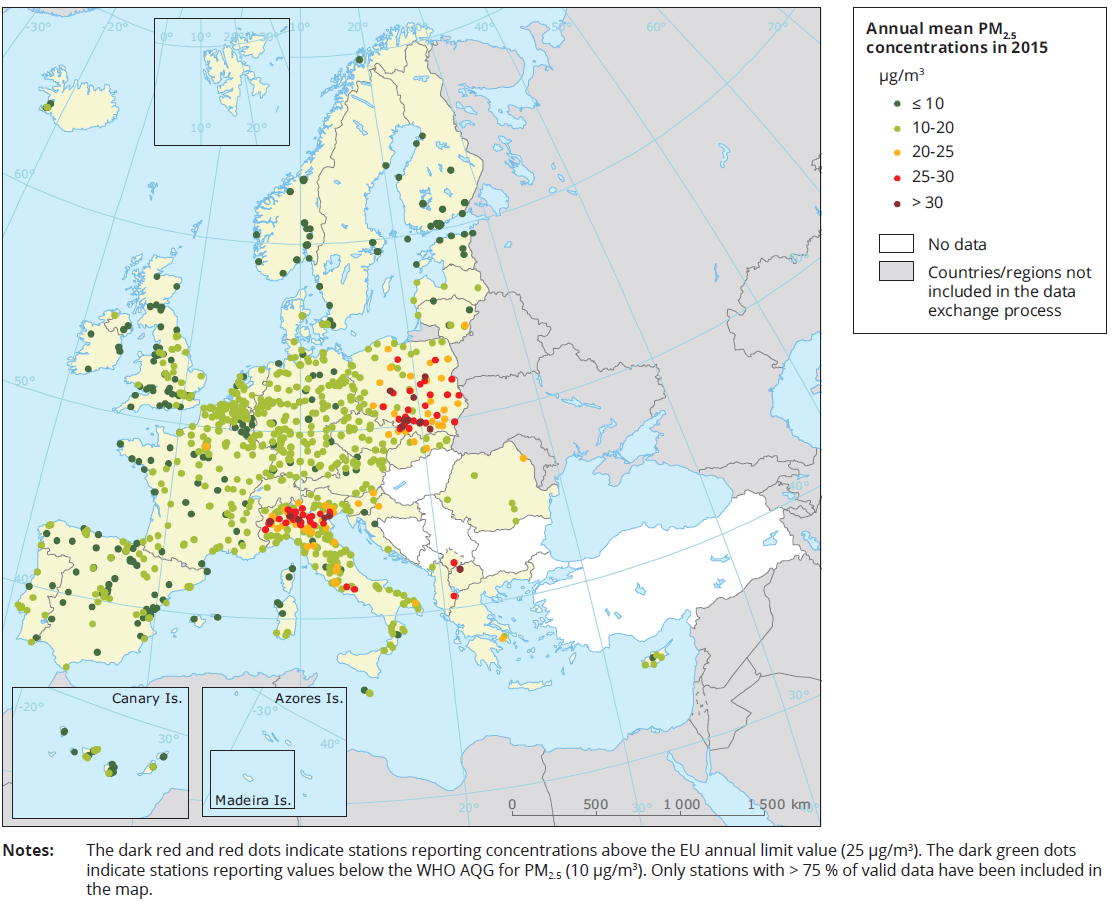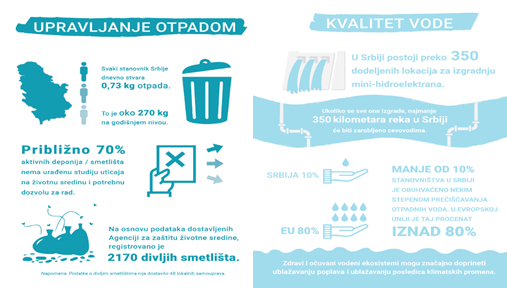June 5th is being celebrated worldwide as the World Environment Day. It has been celebrated since 1973. Our Prime Minister was accompanied by the Ministers of Environmental Protection, Finance and Health, as they were cleaning the Sava lake coastline together. Environment is what gathered them in that action. In front of cameras, Government Ministers were collecting trash. Journalists quoted the Prime Minister saying that “we have to preserve our environment for future generations” and deemed cleaning the environment as a patriotic act.
The Environment was definitely under the spotlight today, smiling upon us from the headlines, earned a spot in the news and even had a chance to outshine the Economy, the usual main host star of the news program. Today it felt like the Environment truly mattered to all of us. Even the Prime Minister. The Government Ministers as well. Don’t let me start with journalists. Last but not least, ourselves. It felt as if we really worked hard on preserving it.
Tomorrow the Prime Minister will be elsewhere, following her busy schedule. The new Minister of finance will follow the old habits of his predecessor, labeling the environmental protection as something costly. Cameras and journalists will focus on other topics.
What about the Environment? What will happen with it, once the cameras are off?
The Environment will take a step back from the headlines, towards it usual place among other less relevant news. It could, however, pop up among the headlines a couple more times, when Minister announces another newly discovered location of illegally deposited toxic waste.
What about us? Well, we are probably going to remember the Environment no more than couple times before June 5th next year.
Picture this now: It’s November, we’re rushing to our offices in the morning, finding our way through the smoke from our neighbors’ chimneys and coughing hard – we may start thinking about the quality of the air we breathe every day. Is it normal to be able to see, smell and almost taste the air we breathe, taking into account that, by definition, it’s a gas with no color, taste or smell. We could wait for the Annual Report of the Environment Protection Agency on air quality – the one with the data for the previous year. Taking a look into that Report might assure us that the town we live in falls among the ones with clean air, colored in green. That would blow our doubts away. Unless, we had a chance to go through the No-Progress Report, issued by Coalition 27, reporting to us that reading between the lines is the only way for us to know what kind of air we breathe and that filing an official request for information to our town’s administration might be the only way to get the answers we want. Perhaps we’ve had a chance to take a look at the EEA (European Environmental Agency) Report on Environment, showing to us that our country is one of those in which air pollution ceilings have been breached. Meanwhile, World Health Organization says that 5400 premature deaths occur in Serbia due to air pollution. Perhaps we knew some of those people personally. However, we will think of air either when it’s so polluted we can actually see it with the naked eye, or June 5th, when the Environment seizes the opportunity to stand among the headlines.

Image number 1: Concentrations of PM 2.5 in Europe (Source: EEA)
Waste might pop up in our thoughts more frequently, especially if we live in rural parts of Serbia, in which the waste collection system might not have been properly established. This is the exact reason why we have over 2000 illegal landfills all over Serbia, many of which emerged in our forests, by our streams and roads.
The quality of surface and underground waters is not something we will usually think of. Unless we happen to be passionate fishermen or if we are into water sports, which may lead to frustrations if we are forced to paddle between plastic bottles, bags, household machines, or if we live in Zrenjanin, a city faced with the challenge of drinking water quality or the past 14 years, during which arson might have become a part of our daily nutrition. 5 billion euros for building up 300 wastewater treatment facilities is what stands between us and safe and clean water flowing from out taps. With less than 10% wastewaters covered by treatment facilities, our cities and municipalities still allow themselves to misuse environmental funds in order to give subsidies to public utility companies, or even zoos.

Image number 2: Waste and water management in Serbia
Nature protection is most likely not to receive any of our attention. Unless, we were (un)lucky enough to live on Zlatar, Kopaonik or by Silver Lake, and happen to depend on tourism. We won’t feel disturbed if we hear that owls are endangered. Not until the population of rats or other rodents suddenly rises because there’s no owls left above us in the trees and above them in the food chain. The sudden rush of rodents might force us to think about the owls sooner or later. We may even finally realize that every single animal plays a very important role in the ecosystem. You may not heard about the sudden “tsunami” of mini hydropower projects, the tsunami strong enough that not even national parks were not protected. If that’s not something we can see every day, we won’t bother if these energy facilities cause irreparable damage to many rivers and ecosystems.
Although Environment is not in the headlines, there are still plenty of interesting topics there. For example, the lottery with apartment as a main prize, in which you take part by collecting fiscal bills. While we work hard on collecting many fiscal bills hoping for an apartment, we won’t be aware that we’re exposed to Bisphenol A, a dangerous substance threatening or endocrine and reproductive systems. However, you could know that if you went through the pages of the No-Progress Report dealing with chemicals.
To sum up, the Environment will once again become less interesting and costly topic, a topic to be avoided, once the cameras and journalists turn their focus towards other topics and the officials carry on with their schedule. The Environment will go back out of the spotlight and take its place among less interesting topics. It’s not we who say so, it’s the Budget of the Republic of Serbia (according to which, less than 0,5% of GDP will be spent on environmental protection). We’ll carry on with our lives in our more or less important environment. We’ll keep breathing polluted air, take a swim in polluted water, enjoy long walks surrounded by waste with forests around us disappearing. No one will ask us to take part in decision making related to environmental protection, so we shouldn’t be surprised when these decisions are undermining our own interests. Climate change will keep surprising us regularly, as unprecedented floods and droughts continue to happen one after another. You should have no doubts when it comes to who’s going to pay for all of that – it’s you, and people around you. It’s us, all of us.
Taking everything into account, we may even forget about the Environment completely until June 5th next year.
But, what if things were the other way round?
What if we suddenly realize that it’s our own lives that happen in that same Environment? What if we dare to think that it depends on us? If that’s the case, we may even address our decision makers and ask to put our health and environment first on their priority list, even ahead of the investments. We may even become curious and officially ask our local administration to explain how the money for environmental protection is being spent. We may remember all the rights we have, including the right to lie in a healthy environment, as guaranteed by the Constitution.
Mirjana Jovanović, Belgrade Open School
Photo sourece: Freepik
